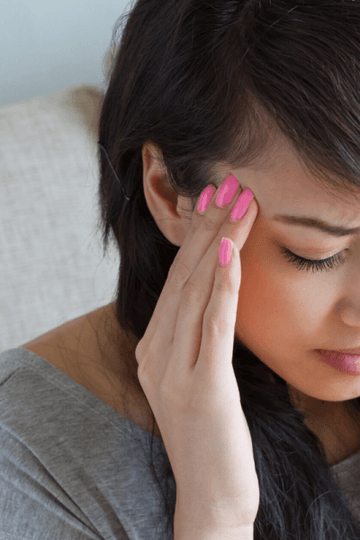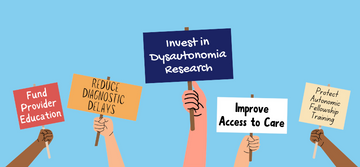
A few years ago, stories of a miracle drink began circulating through the migraine community, in which patients claimed an elixir of nothing more than water, table salt and lemon juice could stop an attack in its tracks.
In 2016, the alleged link between sodium intake and migraine severity was corroborated by researchers at the Huntington Medical Research Institutes in Pasadena, California, who found that of nearly 9,000 adults surveyed between 1999 and 2004, those with the highest levels of sodium in their diets—from products like meat, cheese, bread and table salt—reported the fewest severe headaches and migraines.
Since then, the narrative has periodically resurfaced, usually by relying on anecdotal evidence to show that more salt intake can reduce the likelihood of an attack.
On their own, these stories may seem compelling, but there is widespread disagreement about their validity. For example, the miracle drink was quickly debunked as a “be-all-end-all,” and other studies conflict that of the Huntington Medical Research Institutes—specifically, a BMJ Open article that showed lower sodium intakes were tied to fewer headaches.
For people living with migraine that just want to find an escape from their symptoms, the opposing evidence is enough to cause a person to go crazy. What is one supposed to believe?
More than one type of migraine
Like many chronic diseases, migraine is diagnosed by its symptoms rather than any specific test, genetic or otherwise. In part, this is a result of migraine’s heterogeneity, meaning the exact pathology can be different for each patient. Although it is widely agreed what migraine “looks” like (painful headaches that last for four to 72 hours that often appear on one side of the head), symptoms, severity, triggers and treatments can vary widely.
Moreover, researchers do not yet entirely understand what causes migraine. Diverse theories—such as “super-active” brains or sensitivity to calcitonin gene-related peptide (CGRP), a protein that helps communicate pain—demonstrate that more research needs to be done before a universal treatment can be found.
All this means that while dehydration can lead to a migraine attack, it is not the sole cause. Stress, caffeine, alcohol, allergies, hormonal changes and other mineral imbalances can also trigger an attack, even if the person is fully hydrated.
Dehydration and migraine
Experts often warn against recommending a single treatment, like a mixture of salt and water or even a prescription medicine, as an option that will work for everyone. However, it is true that dehydration is one common cause of migraines, and should not be discounted as an option when pursuing solutions. As migraines.com points out, migraine patients are usually given an IV—which is nothing more than water, sodium and sugar—if their symptoms are bad enough to cause an emergency room visit.
If you are worried that dehydration could be leading to migraines in you or a loved one, it is worth talking to your doctor about experimenting with intake of water and salt, especially sodium and potassium.
These minerals can be obtained from a diet rich in fruit and vegetables, but you may also find supplements like SaltStick Vitassium can help provide a more precise way of getting in enough electrolytes in a balanced format. Each two-capsule serving contains 500 mg of sodium and 100 mg of potassium in a form that is easily absorbed by your body without causing stomach upset. In addition to convenience, Vitassium can help you consume adequate electrolytes, which along with water, is important to mitigating dehydration.
Learn more about SaltStick Vitassium here.
Disclaimer: Contact your physician before starting any exercise program or if you are taking any medication. Individuals with high blood pressure should also consult their physician prior to taking an electrolyte supplement. Overdose of electrolytes is possible, with symptoms such as vomiting and feeling ill, and care should be taken not to overdose on any electrolyte supplement.
In 2016, the alleged link between sodium intake and migraine severity was corroborated by researchers at the Huntington Medical Research Institutes in Pasadena, California, who found that of nearly 9,000 adults surveyed between 1999 and 2004, those with the highest levels of sodium in their diets—from products like meat, cheese, bread and table salt—reported the fewest severe headaches and migraines.
Since then, the narrative has periodically resurfaced, usually by relying on anecdotal evidence to show that more salt intake can reduce the likelihood of an attack.
On their own, these stories may seem compelling, but there is widespread disagreement about their validity. For example, the miracle drink was quickly debunked as a “be-all-end-all,” and other studies conflict that of the Huntington Medical Research Institutes—specifically, a BMJ Open article that showed lower sodium intakes were tied to fewer headaches.
For people living with migraine that just want to find an escape from their symptoms, the opposing evidence is enough to cause a person to go crazy. What is one supposed to believe?
More than one type of migraine
Like many chronic diseases, migraine is diagnosed by its symptoms rather than any specific test, genetic or otherwise. In part, this is a result of migraine’s heterogeneity, meaning the exact pathology can be different for each patient. Although it is widely agreed what migraine “looks” like (painful headaches that last for four to 72 hours that often appear on one side of the head), symptoms, severity, triggers and treatments can vary widely.
Moreover, researchers do not yet entirely understand what causes migraine. Diverse theories—such as “super-active” brains or sensitivity to calcitonin gene-related peptide (CGRP), a protein that helps communicate pain—demonstrate that more research needs to be done before a universal treatment can be found.
All this means that while dehydration can lead to a migraine attack, it is not the sole cause. Stress, caffeine, alcohol, allergies, hormonal changes and other mineral imbalances can also trigger an attack, even if the person is fully hydrated.
Dehydration and migraine
Experts often warn against recommending a single treatment, like a mixture of salt and water or even a prescription medicine, as an option that will work for everyone. However, it is true that dehydration is one common cause of migraines, and should not be discounted as an option when pursuing solutions. As migraines.com points out, migraine patients are usually given an IV—which is nothing more than water, sodium and sugar—if their symptoms are bad enough to cause an emergency room visit.
If you are worried that dehydration could be leading to migraines in you or a loved one, it is worth talking to your doctor about experimenting with intake of water and salt, especially sodium and potassium.
These minerals can be obtained from a diet rich in fruit and vegetables, but you may also find supplements like SaltStick Vitassium can help provide a more precise way of getting in enough electrolytes in a balanced format. Each two-capsule serving contains 500 mg of sodium and 100 mg of potassium in a form that is easily absorbed by your body without causing stomach upset. In addition to convenience, Vitassium can help you consume adequate electrolytes, which along with water, is important to mitigating dehydration.
Learn more about SaltStick Vitassium here.
Disclaimer: Contact your physician before starting any exercise program or if you are taking any medication. Individuals with high blood pressure should also consult their physician prior to taking an electrolyte supplement. Overdose of electrolytes is possible, with symptoms such as vomiting and feeling ill, and care should be taken not to overdose on any electrolyte supplement.








